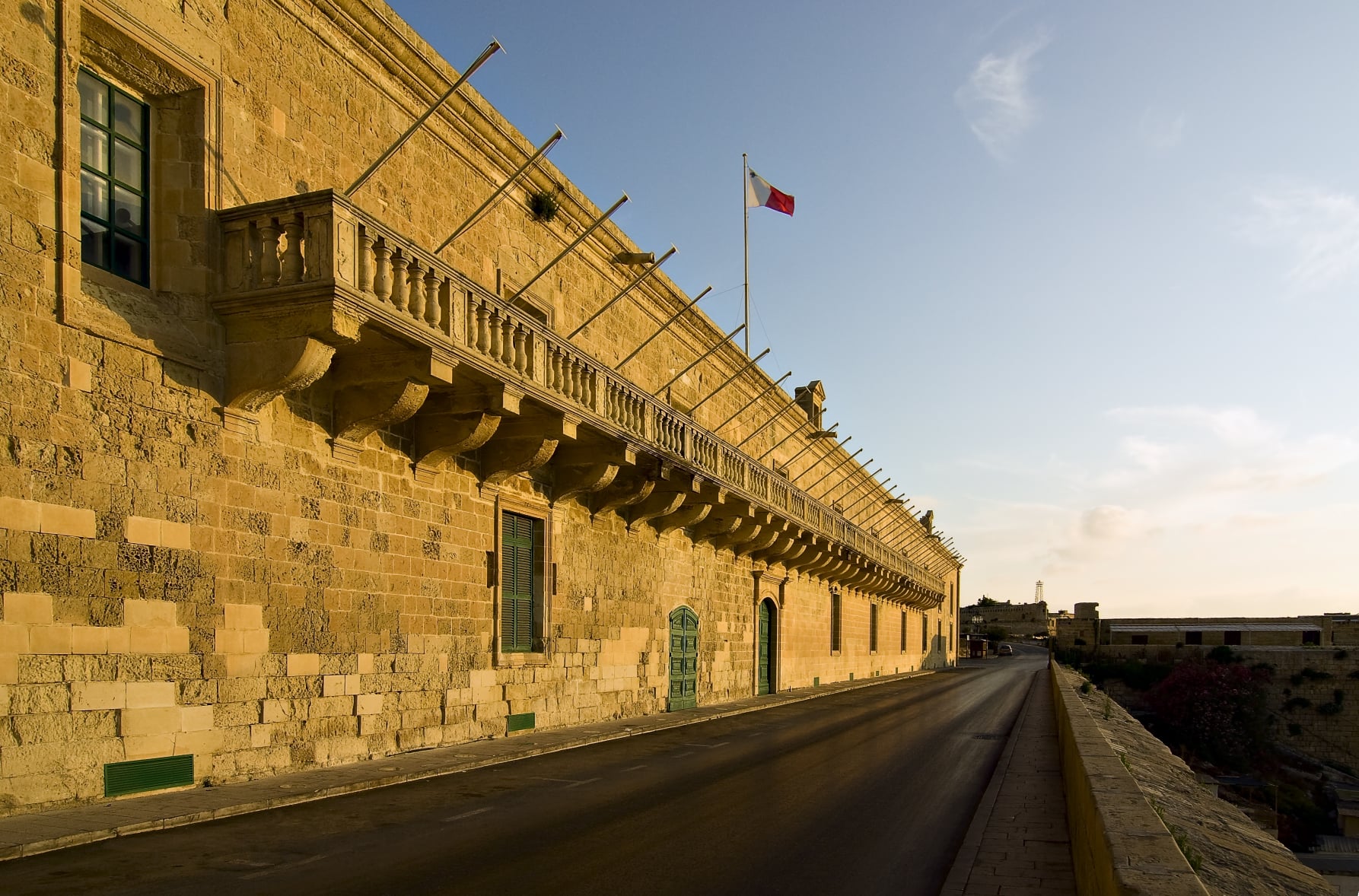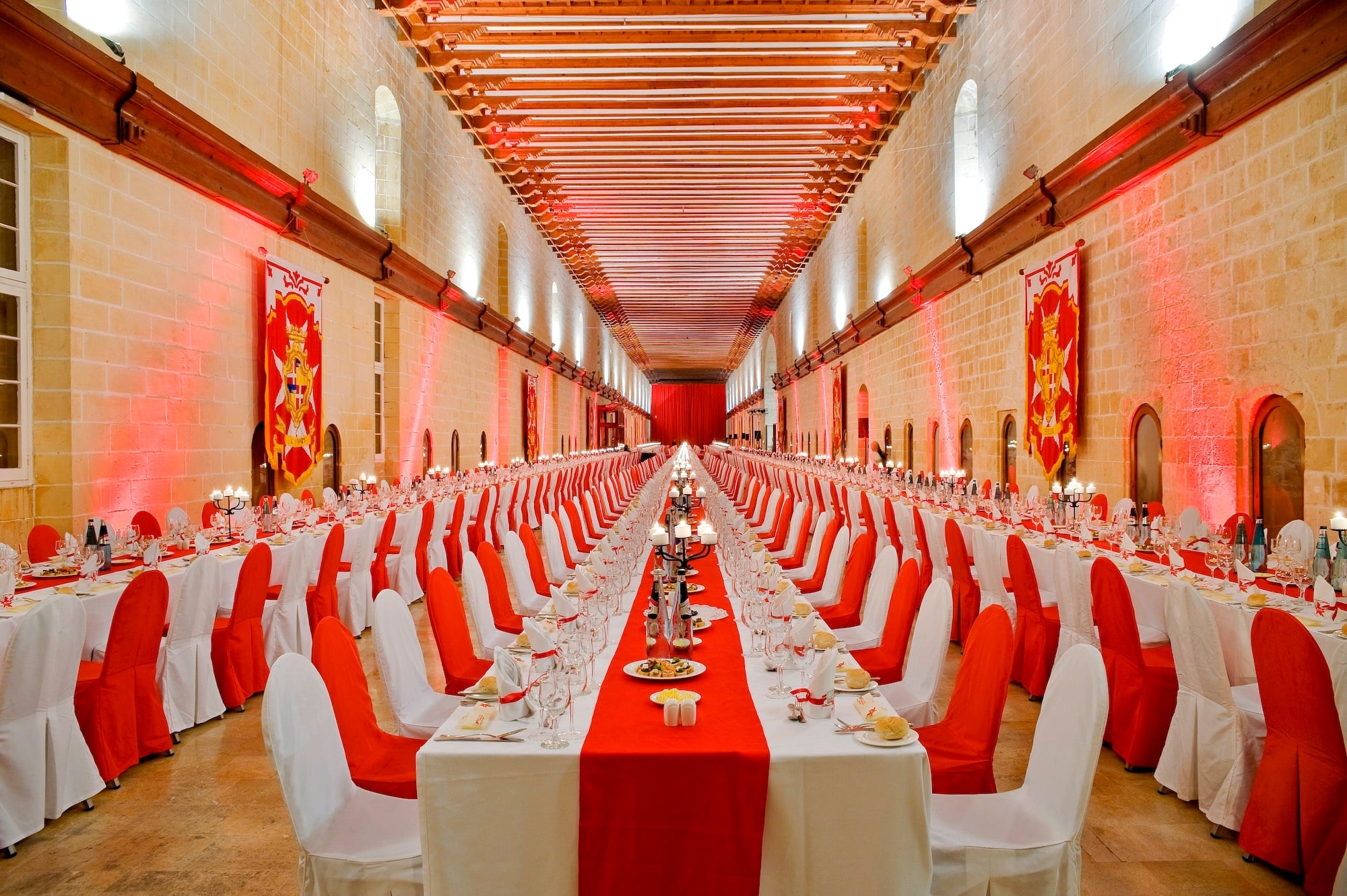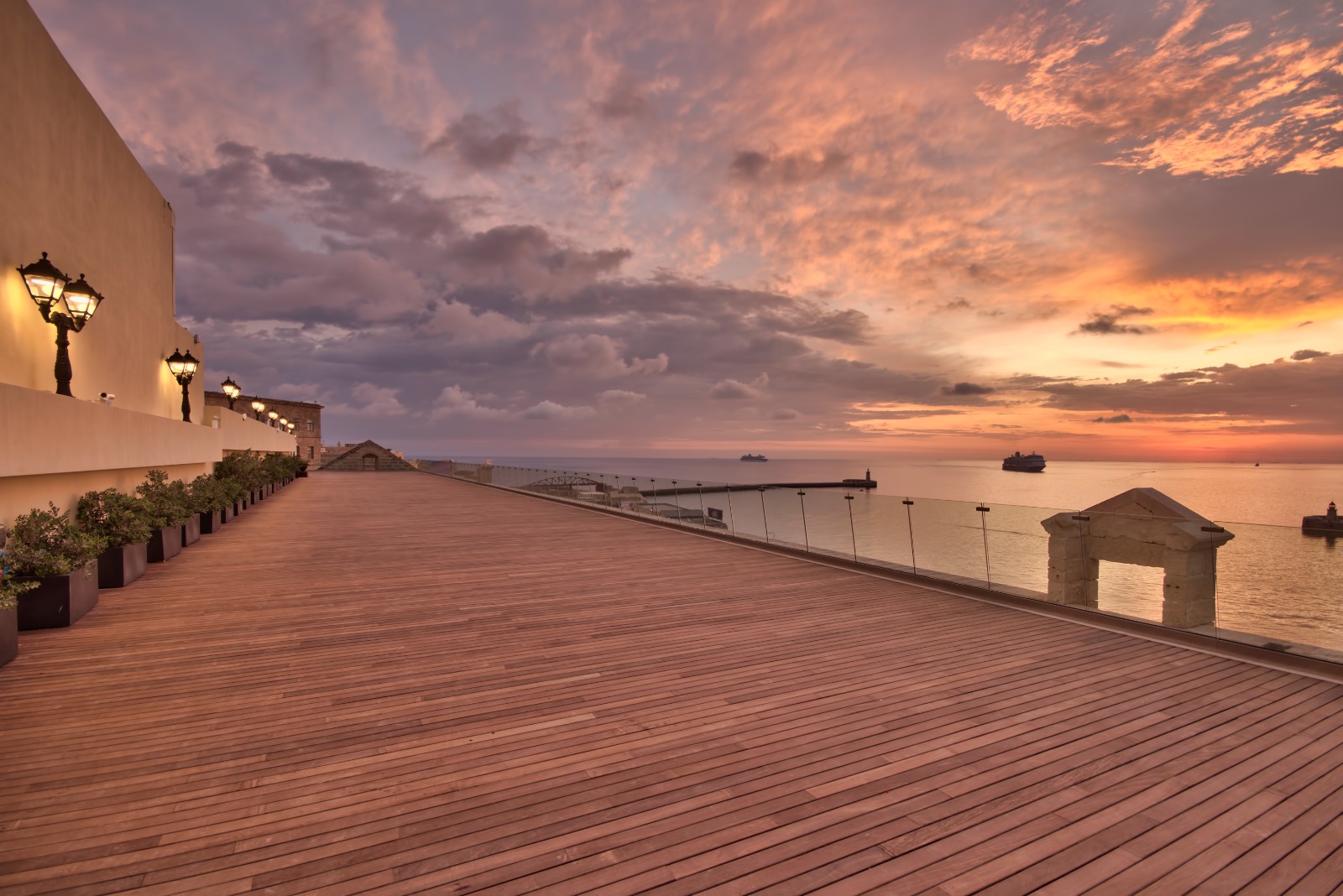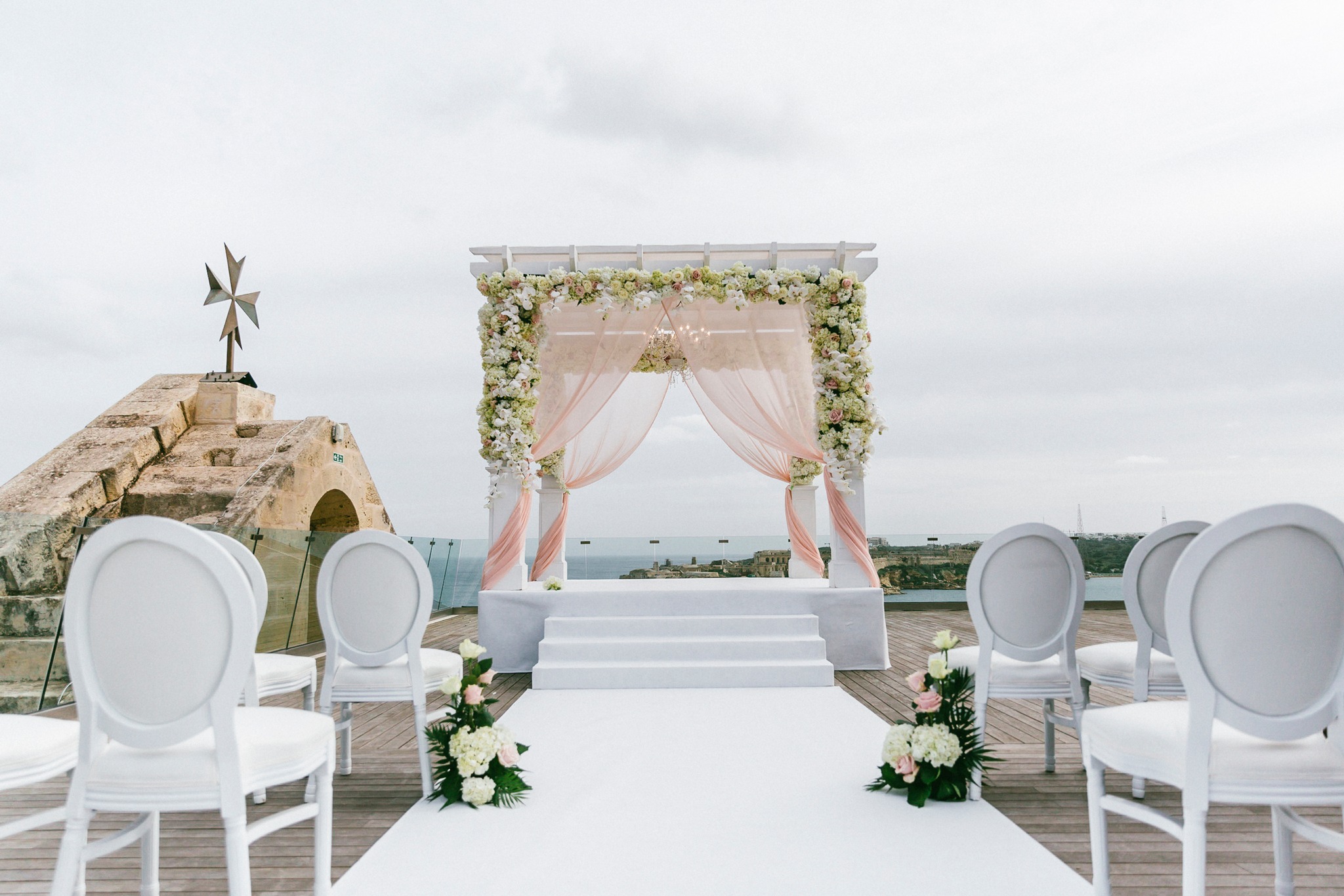A landmark, 16th Century building, the Mediterranean Conference Centre (MCC) is located towards the tip of Valletta peninsula, with stunning views of the Grand Harbour.
Apart from conferences, it offers one of the finest venues in the Mediterranean for a range of events including product launches, exhibitions, conventions, banquets and theatrical performances.
Today, when taking into consideration all venues within the vast building, both outdoors and indoors, it can take up to 3,500 people, making it an internationally unique venue due to its history and the modern amenities it provides guests.
Chief Executive Officer (CEO) of the highly sought-after MCC, Pierre Fenech, describes two major milestones since taking on the leading role in 2015: setting right the company’s finances which proved to be invaluable once the pandemic hit and revenue streams dried up, and the ongoing major restoration and upgrade works on the historic building.
Mr Fenech shares that, like many other businesses, the pandemic came as a major blow. 2019 had been a record year for the venue, which hosts corporate conferences, events and weddings. A look at the company’s bookings showed that 2020 was also going to be a bumper year, however in March, when Government took restrictive action to stem the spread of the virus, the MCC’s calendar cleared overnight.

The Mediterranean Conference Centre
A pragmatic and an optimist, Mr Fenech and his team took the time to complete infrastructural works that had been ongoing since 2015.
Taking us back to this time, he explains that then, around a third of the MCC was inaccessible to the general public, not because sections were reserved for specific purposes, but because the vast 450-year-old building had sections that were simply not refurbished or opened up in any way.
At the same time, the MCC noted the many requests from visitors for information on the origins behind the historic building, originally built by the Knights of St John as a hospital. The team realised there was a need to tell the story of the building, without impacting the business model that sustains its operations, that of acting as a venue for conferences and events.

MCC Sacra Infermeria Hall / Facebook photo
Therefore, he explains, the venue could not be turned into a museum, as this would hinder its main operation.
“We thought outside the box, and decided to create a virtual museum, as an experience to provide to visitors. It was inaugurated in 2020 and is available today through new augmented reality and holographic technology.
“People can use their mobile phones or tablets and are able to see what the place was used for throughout the past 400+ years,” he shares.
To create the virtual museum, the MCC had to open up all sections of the building, in order to map it and create graphic visual representations.
So, how did the MCC pay for all this?
To open up all sections, which required significant infrastructural works, and to refurbish the parts that were already in use, The MCC secured funding through EU Regional Development Funds, allowing the team to open up every single section of the venue by end-2023.
Here, Mr Fenech stresses that works went beyond opening various sections of venues of the building, but the MCC also invested in providing a more modern and improved service to clients.
For instance, old air conditioning units were replaced, new audio-visual equipment was installed, with the latest technology being used to conference organisers.
The MCC is a rare example in the region of a heritage building functioning to the exacting demands of the 21st century.
Since 2015, some €10 million has been invested to carry out the improvements, which included changing the switch gear of the building, improving the electricity distribution and allowing the MCC to handle larger and more high-profile events.
The MCC is divided on three floors, which at the time of the Knights, were split into wards based on social classes. What is today called the La Vallette floor, was used to treat the common people. Unsurprisingly, nobles were treated on the upper floors, while slaves were treated on the lower levels – inaccessible till today.
“This year we are finalising the adjudication of tenders, and hopefully by the end of the year we will also open the lower levels,” he says.

MCC Grand Harbour Terrace
Looking at the silver lining from the pandemic, having all shows postponed for some time allowed the team to set to work on refurbishing the main theatre.
“Since the MCC theatre is very busy, practically in use all year round, to do such significant works on the theatre we would have had to close it, which seemed impossible prior to the pandemic.
“During the pandemic we had to take quick decisions to do the work and take advantage of that break. Today, there’s only small bits and bobs left, which I consider to be a major milestone as these works were long overdue.”
Turning the conversation to 2022, Mr Fenech says the MCC is optimistic, as major pandemic-related disruptions receding. He does, however, express concern at the Russia-Ukraine conflict, hoping for a diplomatic end to the war.
International conflicts notwithstanding, Mr Fenech says a large part of the optimism stems from the inauguration of the outdoor Grand Harbour terrace in 2020, which turns the MCC into a highly sought-after venue having strong venues both indoors and outdoors.
“We are on a high as through the rooftop Grand Harbour terrace, we are the newest venue on offer. It’s a magnificent venue with magical views of the Grand Harbour, and allows our schedule to be in demand year-round, irrespective of the weather.”

MCC Grand Harbour terrace set up for a wedding / Facebook photo
Asked what he believes the unique selling point of the MCC is, Mr Fenech quickly states that it’s the building’s uniqueness, together with the service provided. He looks back to the last conference that took place at the MCC prior to the pandemic, an international event hosted by Samsung.
He excitedly remarks that the feedback the MCC received from Samsung could not have been more positive.
“We have the latest technology and amenities installed in a historic and beautiful building. When conference organisers host events with us, they do not need to hire a raft of equipment to meet their desired standards, we have all these services installed in-house.”
Closing off the conversation, Mr Fenech strikes a more serious tone, saying that without the commitment and dedication of the staff at MCC, numbering around 40 people, the venue’s success would not have been possible.
“When the pandemic hit and we lost all our bookings overnight, I called each staff member to explain the situation, and that the MCC will now turn its efforts to carrying out pending works in full force.
“The staff really pulled together and worked tirelessly for the past 15 months. Thanks to them, we are now in a position that we can offer our customers a much better product, and we are more competitive than we were before the pandemic.”
Main Image:
